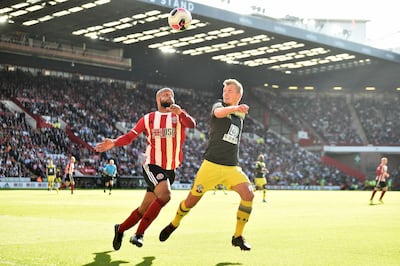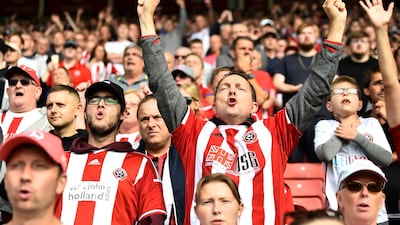A Saudi prince has emerged victorious after a bitter legal battle for control of English Premier League side Sheffield United.
A UK judge ordered a co-owner of the club to sell his half share to Prince Abdullah bin Mosaad Bin Abdulaziz following an 18-month legal battle.
The UK's high court heard that relations between Prince Abdullah and co-owner Kevin McCabe had broken down over financial and management disputes after they struck a deal in 2013.
The row intensified as the club rose from the third tier of English football to the money-spinning Premier League. Sheffield United were promoted to England's top-flight in June after an absence of 12 years and have started the season promisingly and are currently 15th in the 20-team league with one victory from their five games.
Mr Justice Fancourt ruled on Monday that the McCabe family must sell their 50 per cent stake to Prince Abdullah for £5 million (Dh22.8m) in line with their 2013 agreement.
“I am delighted that this judgment brings an end to the uncertainty over Sheffield United’s future,” said Prince Abdullah in a statement.
McCabe said he was "bitterly disappointed" with the ruling and said he would consider appealing.
The wealthy businessman, who claims to have invested more than £100 million into the club, said he felt a “sense of betrayal” and regretted going into business with Prince Abdullah.
The pair had met when Sheffield United were languishing in the third tier of English football and McCabe was looking for investors.
Prince Abdullah, a grandson of the late King Abdulaziz, agreed to inject £10 million over two years in return for a half-share in the club. The two sides then disagreed over who would continue to fund the loss-making club until United reached the Premier League.
It emerged that Prince Abdullah "though rich by any standards" was not as wealthy as McCabe believed him to be, according to the court ruling.
With the club in financial difficulty, Prince Abdullah secured a £3 million loan from investment company Charwell Investments, which was ultimately controlled by the family of Osama Bin Laden.
The court was told that a colleague wrote an email to McCabe warning that he would hate the local newspaper having headlines saying "Blades launder money for extremists".
The issue became a bone of contention at the trial but the judge found that McCabe was "delighted" to receive the money and was "not in the least concerned whether the money was coming from a Bin Laden controlled company, as he must have known it might be."
The judge also dismissed claims that Prince Abdullah had taken a bribe as part of his efforts to secure the money from Charwell.

The judge described claims of a conflict of interest for Prince Abdullah as “fanciful” and said that he was a “generally reliable witness” despite forgetting about some meetings.
In his statement Prince Abdullah said his goal was to secure the club's status in English football's top league for years to come.
“To help realise that ambition, I am fully committed to continued investment in both the first team and the academy and to bringing best practices and the highest standards of management to the club,” he said.
A club statement read: "After over 20 months of contentious litigation, the club is delighted that this judgement brings an end to the uncertainty over Sheffield United's future ownership and allows us to focus our full attention on the season ahead."


